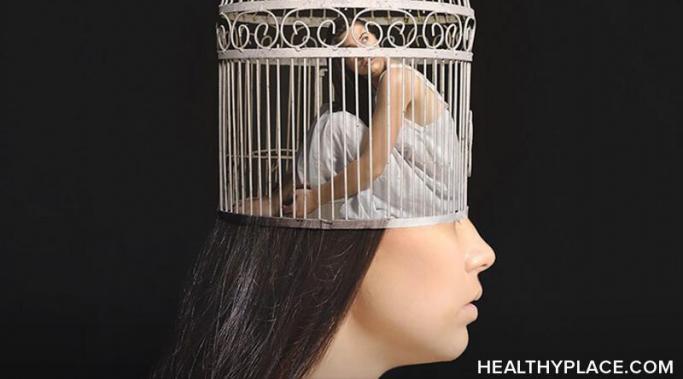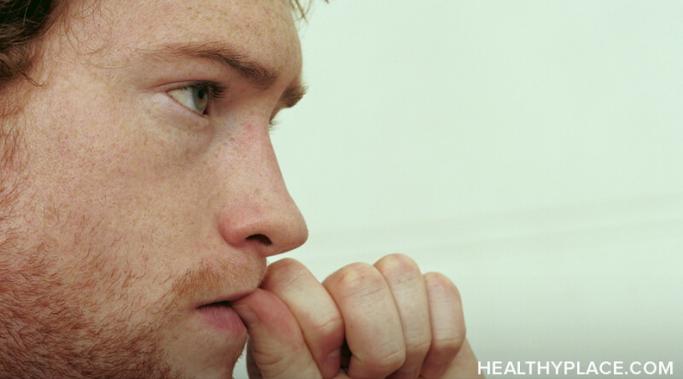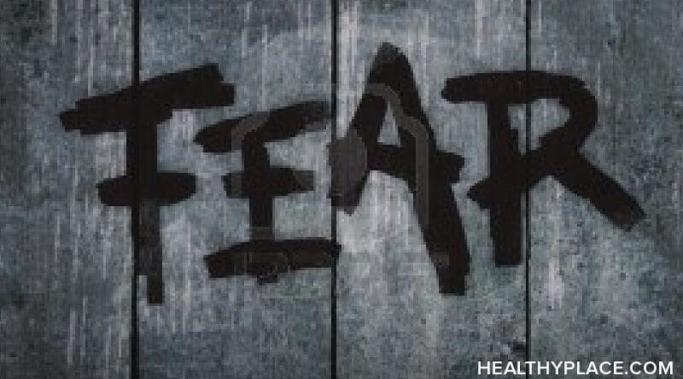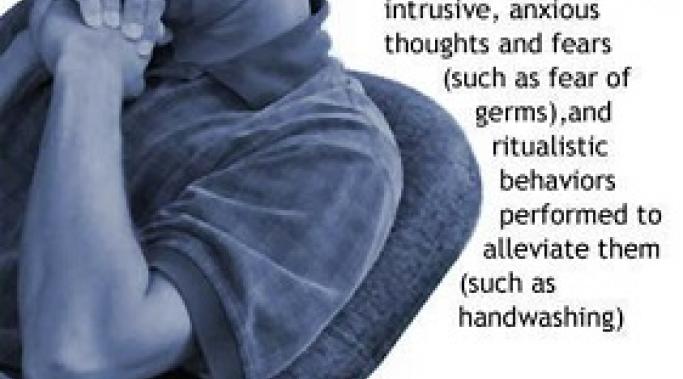Performance anxiety may prevent me from living my dream of singing professionally. Since junior high school, choir teachers and audience members commented on my anxious stage presence. I loved to sing with other people in unison or harmony, but when it came to solos, I was a nervous wreck. I was the recipient of the “Every Which Way but Loose” award in high school choir because onstage, I simply couldn’t relax and enjoy performing. Performance anxiety was front and center at every concert, and it often stole my spotlight.
Types of Anxiety Disorders
Living with social anxiety and jumping to conclusions is like perpetually bouncing on a crowded trampoline: We must be watchful so we don't cause harm to others; we must avoid bumping into, and thus annoying, others; we know if we do it wrong we will surely ruin things for everyone; and we jump, jump to conclusions that we're being judged negatively. Social anxiety is exhausting (Social Phobia [Social Anxiety Disorder, SAD]). You don't have to remain stuck on the social anxiety trampoline, jumping to conclusions that you are somehow lesser than others. To stop jumping to conclusions and soothe social anxiety, to find some peace of mind, you must understand some of the effects of social anxiety.
The notion that it's possible to spot a person with anxiety is mortifying to the tens of millions of people living with anxiety disorders. With its physical side effects that can affect every system of the body and its strong emotional symptoms, many people experiencing anxiety have an added worry that their discomfort is evident to the world. Surprisingly, this guide for spotting a person with anxiety just might make anxiety sufferers feel a little bit better.
While social anxiety is often thought to be something for the introverted among us—after all, they tend to be quiet and reserved—extroverts can experience social anxiety, too. In fact, introversion and extroversion are aspects of personality have no bearing on social anxiety. Social anxiety is an anxiety disorder, a mental health challenge that can be faced by anyone regardless of personality type. Therefore, extroverts can, indeed, experience social anxiety, too.
There are many facts about anxiety that we can use to our advantage. Anxiety has become a household word in our society, and for good reason; together, the anxiety disorders are the most common of all mental illnesses. Indeed, in the United States alone, approximately 40 million Americans live with an anxiety disorder at some point in their lives. Anxiety facts are important for these millions of us to know.
I have experienced more panic attacks than I can count. On average, I have one panic attack per week, and that is after panic attack treatment. Before I knew what was happening to me, I was experiencing panic attacks multiple times per week. Because I am a social person, I often experience these attacks around other people. This has made me very good at explaining, in layman’s terms, exactly what a panic attack is.
If physical health was truly the gold standard for living well, instead of just the perception, I would be the luckiest man in the world. In my adult life, I haven't had the sniffles for more than a couple days. Frankly, my biggest physical flaw is that, as a redhead, my skin burns when I pass a beach-themed vacation poster.
Reality and perception are very different things. While my physical health can be defined as "pretty good for a middle aged guy," my mental health is best described as "dude, where are your pants?"
It can be confusing and frustrating. All around you, you see others attending meetings, luncheons, study groups, parties, and activities. "Everyone" seems able and willing to do so. But for you, the mere thought is horrifying. So what's up? Are you "simply" shy? Is it something more than that? The answer is actually quite personal.
The idea that fear and anxiety are tightly woven together is widely accepted by mental health professionals. I agree, and you might too. But is anxiety only the fear of fear itself?
I'm sure you've heard these statements:
He's so OCD.
Quit being so OCD.
This is just my OCD coming out.
The term OCD has become common in our society. Stigma turned OCD into an adjective that we frequently use to describe someone who likes things a certain way. However, OCD, short for obsessive-compulsive disorder, is much more than a compulsion for neatness.









